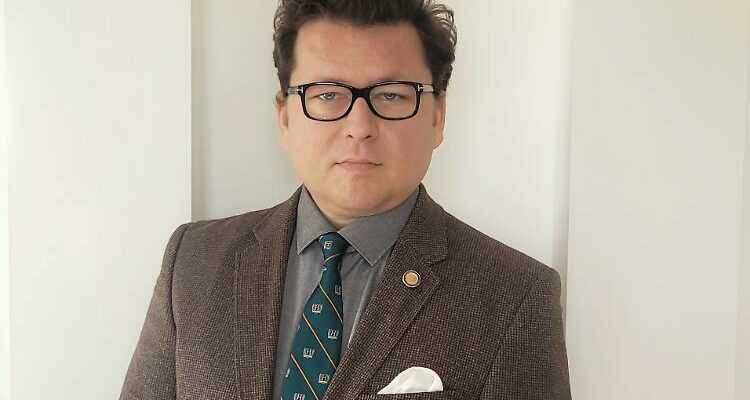Western sanctions against Russia have been in effect for a month. The consequences for the Russian economy are gradually becoming apparent. In an interview, lawyer Viktor Winkler explains how he assesses the measures and whether they can be successful in the long term.
Mr. Winkler, after the annexation of the Crimean Peninsula in 2014, the West imposed sanctions on Russia. In some cases, the courts have subsequently recovered them. Are the current sanctions tenable?
Viktor Winkler is a lawyer specializing in sanctions law. In the course of the Russia sanctions, he looks after banks, companies as well as artists and athletes who are affected by boycotts.
Viktor Winkler: It is not yet possible to say whether the courts will uphold the sanctions. Numerous companies are currently having the legal situation checked. But there is no lawsuit yet. So far, nobody has said explicitly that he or she wants to sue, not even the so-called oligarchs.
Where could legal points of attack be?
According to previous case law, national governments and the European Union are very free to decide why they sanction. But the crux of the matter is the justification. The rule of thumb applies: the EU must set out the reasons in sufficient detail so that, in the event of a lawsuit, the court can verify whether these reasons exist. If the EU formulates its accusations against the sanctioned in such a vague way that it is impossible to debate whether all of this is true or not – then the sanctioning is illegal for this reason alone.
Is this “rule of thumb” fulfilled with the current sanctions?
Every sanction is different and was justified differently by the EU. I don’t think there are two legal points of attack that can at least be ruled out. One is that in many cases the sanctions are vaguely justified with the proximity to Putin or his circle of power or with profiting from this proximity. Here I could well imagine that the EU courts could say: We cannot check that. How did someone benefit, where does closeness begin, who belongs to this circle of power and who doesn’t? Another difficult issue is the relatives, who are also sanctioned in some cases. There is a question of proportionality. Even if someone meets the legal requirements, that does not automatically mean that it is proportionate to also sanction those around them. Rights to privacy and the protection of the family play an enormous role in EU law. The time factor is also relevant: whether and how far back in the past can one go to justify sanctions? Strictly speaking, sanctions must not be punishment for past actions. Otherwise, the procedural rights of suspects, which are guaranteed by all Western constitutions and, incidentally, also by international law, could be circumvented. Sanctions are therefore intended to ward off dangers and sanction current acts that violate international law.
How many lawsuits against the first wave of sanctions in 2014 were successful?
My rough estimate: About two-thirds of the lawsuits were successful. However, we are not talking about a wave of lawsuits here, but rather about maybe 20 so-called delisting lawsuits in total over the past 20 years. The success rate is still surprisingly high if you compare that to the usual chances of success of a lawsuit as a lawyer. For example, the then Ukrainian President Viktor Yanukovych was successful. After his dismissal in February 2014, he is said to have favored the annexation of Crimea and was therefore convicted by a Kiev court. Incidentally, in the case of Yanukovych, the EU lost in court and repeated the sanction – and the EU courts also overturned this sanction. When it comes to sanctions, in the past there have sometimes been hard disagreements between the Commission and the courts.
Is there a wave of lawsuits from oligarchs?
It’s difficult to assess at this point. Much will also depend on the level of pressure exerted by the Western-formed task forces. Ultimately, however, I do not believe in a wave of lawsuits. Many oligarchs probably lack confidence in the EU courts in general. In addition, some oligarchs could already be planning for a time after the war and thus also after the sanctions. Affronts from cases against the EU that were only partially won could make a return politically even more impossible.
Which courts would have jurisdiction?
Sanctions are usually part of international law, decided by the United Nations Security Council and then implemented by the individual member states. In this case not. Russia exercised its right of veto and the Security Council was unable to act. We in Germany are currently dealing with pure EU sanctions. Anyone who wants to defend themselves against the sanctions in this country or in another EU member state must therefore do so before the EU courts with a so-called nullity action.
Are sanctions of any use at all if they can be collected afterwards?
There are different political and legal answers to this question. Politically, the sanctions currently show that the West is extremely united. For this reason alone, I consider them to be extremely effective politically and there is no alternative. Legally, just because the current sanctions can be legally challenged does not mean that lawsuits against them have to be successful. In general, sanctions are a recent invention. They were only properly established as a means of political action in 2014, during the Crimean crisis. Of course sanctions have been imposed before that, in particular it was one of the instruments used to combat terrorism after September 11, 2001. But I would argue that the significance of sanctions for the economy today is completely different. Compliance with sanctions, including through automated systems, has always been strictly enforced in the German economy, and in banks anyway. What is now changing radically: sanctions are no longer just law, but are becoming part of the political culture. Companies over-comply with sanctions for political reasons, not legal ones. This, too, will soon bring us closer to a total embargo against Russia – even before the EU announces one. For us sanctions experts, this is a very remarkable development.
How do you rate the package of sanctions against Russia overall?
It is certainly the most complex and – depending on what you look at – probably also the largest package of sanctions in the history of Western sanctions. This story itself is still very young. The legal field did not even exist until a few years ago. The responsible departments in many companies are correspondingly young. You and the German economy as a whole have to completely rethink your relationship to sanctions these days.
How?
By no longer just locating them in the law. Anyone who sees sanctions as just a right, as a regulatory challenge, is hardly able to act these days. Possible reputational damage and its assessment play a massive role in today’s sanctions, as do risk assessments, compliance, business factors, ethics and politics. Companies can no longer work through these fields one after the other and question one responsible department after the other. You need to see these fields together and still be quick to act. In the networked global economy there is no pause button to calmly carry out sanctions risk assessments.
Where does this paradigm shift come from?
The current importance of sanctions will certainly be decisively determined by the task forces that are supposed to check compliance with the sanctions and are currently being built everywhere, at national and international level: The KleptoCapture and the National Cryptocurrency Enforcement Team are based in the USA, the Russian Elites, Proxies, and Oligarchs (REPO) Taskforce is the international level. In addition, there are the task forces in the individual countries. Germany, too, is currently installing such a group and establishing it at the Federal Chancellery. Docking them there is of course due to the special political importance. But it is also likely to be about the coordinating function of the secret services, which the West expressly wants to play a central role in the task forces. I expect that this will dramatically increase the pressure to prosecute in order to circumvent sanctions, especially internationally. That, too, is quite a historical change.
Are sanctions successful in the long term?
Yes, I think so. They have very often prevented wars and defused war discussions. Sanction law is a substitute for war. Sanctions consistently relegate military solutions to second place. Anyone who does not appreciate this or underestimates it as a success has learned nothing from the 20th century.
The sanctions of 2014 could not prevent a war in Ukraine…
That’s true, but it still wouldn’t be fair as an accusation. The sanctions back then were not specifically designed to prevent a war of aggression in Ukraine. In particular, they were intended to represent distancing and weaken Putin politically.
How do you see the future of sanctions?
My forecast is that sanctions will not only continue their triumphal march, but will also become even more popular as a foreign policy instrument, no matter how the Ukraine crisis develops. Mainly because nobody wants war anymore: not the Western governments, not the voters, but also not the Western military leaders. The future will also be characterized by sanctions becoming much more professional, including sanctions compliance in business and society. There is still a lot of room for improvement here. And that will, I believe, now start massively with the sanctions against Russia. In small and large companies, new departments are being set up and sanction filters are increasingly being purchased or improved. There is a lot of catching up to do, and not just among smaller companies.
Laura Eßlinger spoke to Viktor Winkler
The interview is first at capital published

